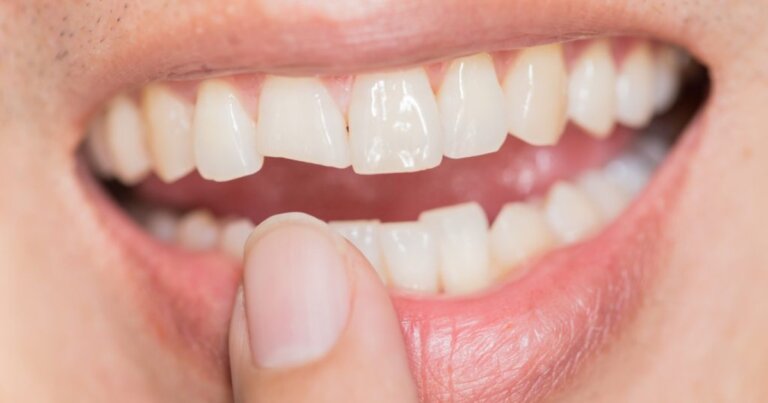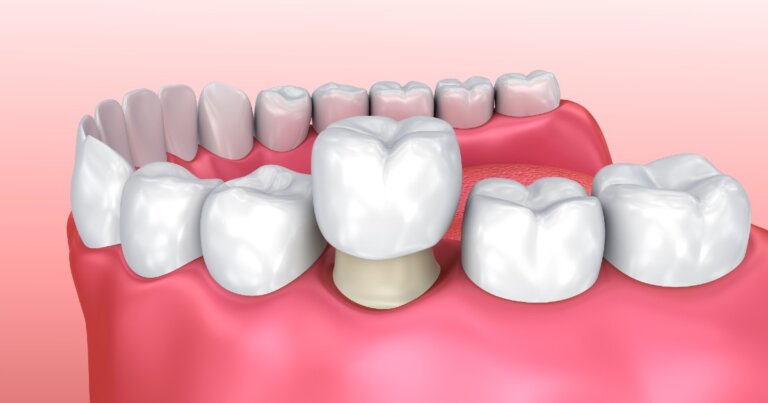Cracked Tooth

What Is A Cracked Tooth?
A Cracked Tooth is a break or fracture in the structure of the tooth, which can range from minor cracks in the enamel to deep fractures that reach the nerve. Sometimes, the crack may not even be visible, yet it can cause pain and sensitivity. If left untreated, a cracked tooth can lead to severe tooth damage, infection, or even tooth loss. Understanding the causes, symptoms, and treatment options for a cracked tooth is essential for maintaining optimal dental health. Before you contact a Toronto dentist to examine A Cracked Tooth, there are some things you should know as a patient:
- Why Do I Have A Cracked Tooth?
- Signs And Symptoms Of A Cracked Tooth
- Treatment Options For A Cracked Tooth
- Managing A Cracked Tooth Until You Can See The Dentist
- Frequently Asked Questions About Cracked Tooth
If you have questions about A Cracked Tooth or other dental problems, please contact us for more information.
Why Do I Have A Cracked Tooth?
There are several possible reasons why you might have a cracked tooth, including:
- Dental trauma: A sudden blow to the mouth or face, such as a fall or a sports injury, can cause a tooth to crack or fracture.
- Tooth decay: Tooth decay weakens the tooth structure, making it more susceptible to cracks and fractures.
- Chewing on hard objects: Using your teeth to bite or chew on hard objects such as ice, hard candy, or pens can cause cracks in your teeth.
- Teeth grinding: Habitual teeth grinding, also known as bruxism, can exert excessive force on the teeth, leading to cracks and fractures. Your dentist may recommend a dental night guard for you.
- Age-related wear and tear: Over time, your teeth can become weaker and more prone to cracking due to everyday wear and tear.
- Large dental fillings: Teeth with large dental fillings (especially ones where the filling makes up more than 50 percent of the visible surface of the tooth or posterior molars that sustain heavy biting forces) can make the tooth weak and susceptible to catastrophic cracks. A dentist may recommend putting a preventative dental crown to cover and reinforce the tooth from future fractures.
- Root canal treated teeth: Teeth that have undergone root canal treatment no longer have the blood vessels that run through the tooth that provide it with nutrients and moisture. This makes the tooth more brittle and susceptible to cracks and fractures. A dentist may recommend putting a dental crown on your root canal treated tooth to cover and reinforce it from future cracks.
Understanding the potential causes of a cracked tooth can help you take steps to prevent future damage and preserve your dental health. If you have further questions about A Cracked Tooth, please contact us.
Signs and Symptoms of a Cracked Tooth
It’s important to recognize the symptoms of a cracked tooth to seek early treatment and avoid further complications. Common signs include:
- Pain when biting or chewing: This may feel like a sharp or throbbing pain.
- Sensitivity to hot, cold, or sweet foods: Cracks expose the inner layers of the tooth, leading to heightened sensitivity.
- Visible cracks or chips: Some cracks may be visible, while others require dental X-rays for detection.
- Gum inflammation: In some cases, cracks can cause redness or swelling in the gums surrounding the tooth.
If you notice any of these symptoms, contact a Toronto dentist for prompt evaluation and treatment. If you have further questions about signs and symptoms of a Cracked Tooth, please contact us.
Treatment Options for a Cracked Tooth
Treatment varies based on the severity and location of the crack:
- Dental Crown: For minor to moderate cracks, a dental crown can cover and protect the damaged tooth. This durable, tooth-shaped cap restores both function and appearance. Porcelain or ceramic crowns are common, and with proper care, they can last many years.
- Root Canal: If the crack extends to the tooth’s pulp (nerve), a root canal may be necessary to remove the damaged tissue and prevent infection. A crown is usually placed afterward to reinforce the tooth.
- Tooth Extraction: Severe cracks that reach below the gumline may require tooth extraction. Afterward, replacement options like dental implants or bridges can restore your smile.
Your dentist can help you determine the best course of treatment based on the extent and severity of the crack.If you have further questions about how to treat a Cracked Tooth, please contact us.

Managing a Cracked Tooth Until You Can See the Dentist
If you suspect you have a cracked tooth but can’t visit the dentist immediately, here’s how to manage the situation:
- Take Over-the-Counter Pain Relief: Ibuprofen or acetaminophen can help alleviate discomfort.
- Rinse with Salt Water: This helps keep the area clean and reduce inflammation.
- Avoid Chewing on the Affected Side: Protect the cracked tooth by eating on the opposite side of your mouth.
- Steer Clear of Hot, Cold, or Hard Foods: These can worsen sensitivity or pain.
- Apply a Cold Compress: Reduce swelling by applying a cold compress to the cheek near the cracked tooth.
It is important to remember that these tips are temporary measures and should not replace a visit to the dentist. Seeking prompt dental attention is crucial to prevent further damage or infection to a cracked tooth. If you have further questions about how to manage a Cracked Tooth, please contact us.
Frequently Asked Questions About Cracked Tooth
- Can a cracked tooth heal on its own?
No, cracked teeth cannot heal naturally and require professional dental treatment to prevent further damage.
- Is a cracked tooth always painful?
Not always. Some cracks may cause no pain initially but can worsen over time and lead to discomfort or sensitivity.
- Can an x-ray detect all tooth cracks?
No, some cracks may not show on x-rays. Dentists often rely on visual exams, patient symptoms, and advanced imaging like CBCT scans.
- What foods should I avoid with a cracked tooth?
Avoid hard, sticky, or extremely hot or cold foods, as they can worsen the crack or increase sensitivity.
A cracked tooth can lead to serious dental issues if left untreated, but timely care can save your tooth and prevent further complications. If you have further questions about how to manage a Cracked Tooth, please contact us.

